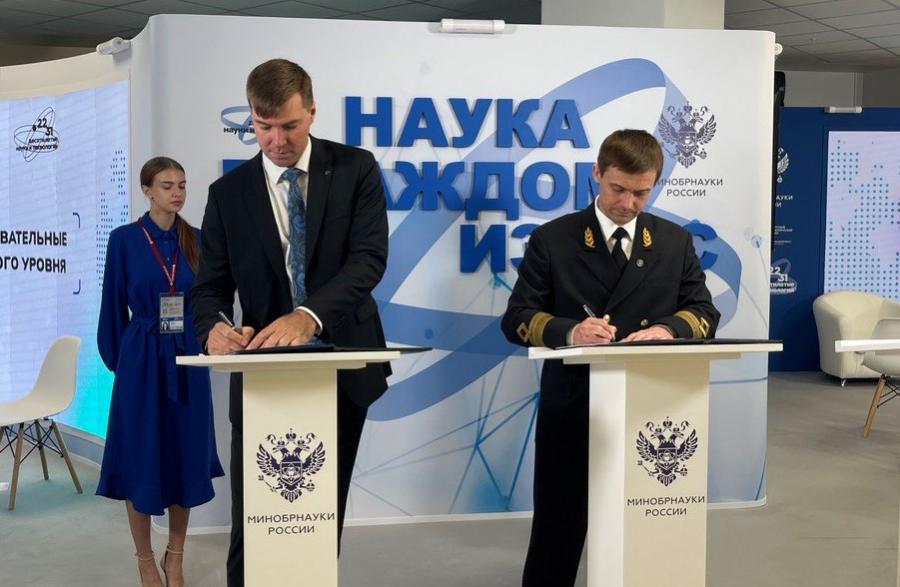MEPhI and Maritime State University named after Admiral G.I. Nevelskoy signed an agreement on the creation of the Consortium “Far Eastern Center for Maritime Nuclear Competence”.

On September 10, as part of the business program of the Eastern Economic Forum in Vladivostok, at the stand of the Ministry of Education and Science of Russia, Vice-Rector of MEPhI Dmitry Savkin and Rector of Maritime State University named after Admiral G.I. Nevelskoy Denis Burov entered into a strategic agreement on the creation of the consortium “Far Eastern Center for Maritime Nuclear Competencies”.
The subject of the agreement is the joint training of highly qualified personnel under higher and additional professional education programs in the field of nuclear energy, including practical training of marine specialists to work on new types of nuclear icebreakers, as well as floating nuclear power plants.
MEPhI and the Maritime State University have begun the implementation of two new joint educational programs in the field of operation of shipboard nuclear power plants. Already in October of this year, the first group of cadets will begin mastering a specialized module in nuclear physics at the site of the Obninsk branch of MEPhI, and in the summer of 2024 they will go to practice at the enterprises of the Federal State Unitary Enterprise “Atomflot” in Murmansk.
According to Dmitry Savkin, “The Northern Sea Route is a key transport and logistics route for our country. For Russian universities, a difficult but most important task is to train unique shipbuilding engineers who will design a modern nuclear icebreaker fleet with nuclear power plants. And here both universities, each in their own field, have unique competencies, which we plan to combine to achieve maximum results in the shortest possible time.”
Within the framework of the consortium, it is planned to train specialists in the Far East in a wide range of nuclear areas: in particular, radiation safety, management of spent nuclear fuel and radioactive waste.
Previously, MEPhI teachers had already conducted an advanced training program on shipboard nuclear power plants at the Maritime State University.





